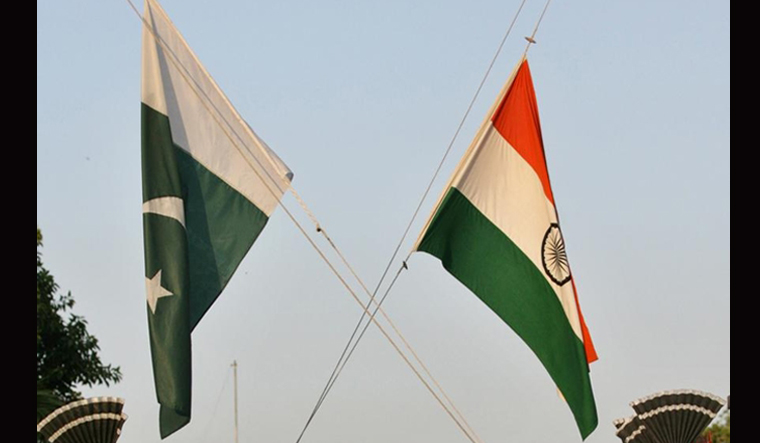"What's your name, do you have an invite?" asked the plainclothesman outside Pakistan high commission on the evening of March 22. As I fished out my invite for the event, he told me, "Government of India had boycotted this event. I request you not to attend, it's a sentimental issue." As I stared at him in wonderment, he quickly said, "but it's your choice, India is a free country,'' and let me pass. Almost every Indian guest who attended the event was subjected to such a grilling. Some even had their names and the names of their organisations jotted down on a sheet of paper.
Earlier in the day, Ministry of External Affairs Spokesperson Raveesh Kumar had said India would boycott the event because Pakistan had extended invitations to the separatist Hurriyat leaders, and India had made it clear it would not accept any engagement of Pakistan with the Hurriyat. So, in the first time under the present dispensation, there was no government representative at the event. In the past years, India has been represented by ministers of state: Prakash Javdekar, M.J. Akbar, V.K. Singh and Gajendra Singh Shekhawat.
The Pakistani hosts seemed to be on edge with this development. Relations were only just easing with the high commissioners of both countries having returned to their respective posts earlier this month. A Malaysian guest murmured, "We hear there is no guest of honour today."
Prime Minister Narendra Modi, however, extended his greetings to Pakistani counterpart Imran Khan, who tweeted in response: “I welcome PM Modi's message to our people. As we celebrate Pakistan Day, I believe it is time to begin a comprehensive dialogue with India to address and resolve all issues, especially the central issue of Kashmir, and forge a new relationship based on peace and prosperity for out people.”
Pakistan High Commissioner Sohail Mahmood rued that the founding fathers of the two countries had thought there would be amicable relations between them, but for most of the history of the two states, relations have remain challenged. "In particular, the two countries passed through a very difficult time recently," he said, adding, "Prime Minister Imran Khan’s decision to release Wing Commander Abhinandan, return of the two high commissioners to their respective missions, and bilateral meetings to develop modalities for operationalisation of the Kartarpur Corridor are steps in a positive direction. There is, however, still the need to reassure concerned citizens in both countries, to consolidate the process of de-escalation, and to stabilise the ties against further shocks.''
In a reference to India's decision to boycott the event, he said, “One key take-away from recent developments is that the lack of engagement creates dangerous vacuum and serious risks for the relationship. As we limp back from the brink, we must make sure that we act with wisdom to find a way forward—for our countries, and for our peoples."
He emphasised the need to give diplomacy and dialogue a chance, noting that coercive measures had neither succeeded in the past nor would in future.
Mahmood said that Pakistan's fight against terrorism has "turned a corner" and that there was a real transformation underway in Pakistan. The envoy said: “We do hope the long winter in India-Pakistan relations would come to an early end.” He felt that "people of goodwill must continue to work for a new spring in the relationship—one that enables our teeming youth to fulfill their aspirations, and our two countries to achieve their optimal potential.”
He added that, "ultimately, hope always triumphs over fear."
Attendance was thin at the event, but there a a good smattering of former diplomats and lots of media persons to be seen. There were also envoys from other missions.



